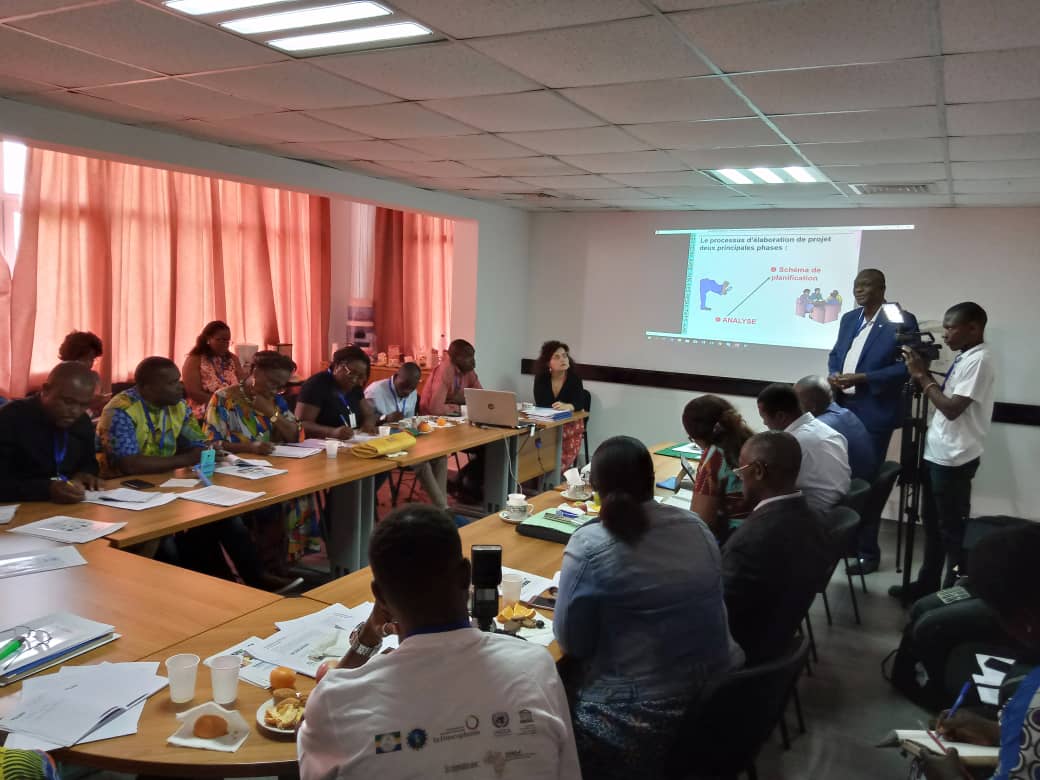FREE FLOW OF INFORMATION
Sent to CPNN by Jerry Bibang, National Coordinator of PAYNCoP Gabon.
The National Coordination of the Panafrican Youth Network for the Culture of Peace (PAYNCoP Gabon) took part, on Saturday, June 15, 2019, in a capacity-building workshop on the concept of “culture of peace” organized by the bureau of UNESCO in Gabon representing the United Nations.

Photo © PAYNCoP Gabon
The activity brings together several organizations working for the culture of peace in Gabon including the Panafrican Youth Network for the Culture of Peace, the Pan-African Network of Women for Culture of peace and sustainable development, women of the press for the culture of peace, Unesco clubs, etc.
For the organizers, the aim of this workshop was to provide the civil society organizations with a better understanding of the concept of “culture of peace” and tools for the implementation of activities related to this concept.
In his introduction, Mr. Fazzino, the Representative of UNESCO, welcomed the participation of the various organizations before recalling the goals of this workshop. It will be first to show how the culture of peace contributes to the objectives of sustainable development and how to take action through projects that can be financed. He provided guidance on how to seek funding.
(Article continued in right column)
( Click here for the French original..)
Question related to this article.
Will UNESCO once again play a role in the culture of peace?
(Article continued from left column)
The first paper, moderated by Dr. Joris Tindy Poaty, PhD in philosophy and expert at UNESCO, focused on the origins of the concept of “culture of peace”, its definition and the international instruments related to this concept. The term was used for the first time at a congress in Yamoussoukro in 1989, while the culture of peace has its source in the constitutive act of the United Nations organization whose mission is to build a peaceful world, he recalled. A full definition of the culture of peace may be found in UN Resolution 52/13 of 15 January 1998.
UN resolutions relating the culture of peace include resolutions 1325 (women, peace and security), 2250 (youth, peace and security), 2419 as well as UNESCO’s recommendation on education for understanding, cooperation and international peace. Other important instruments that contribute to the culture of peace include the Seville Manifesto and the Manifesto 2000.
Participants also received a communication describing the process of project development. It was facilitated by an expert from the United Nations Regional Office for Central Africa (Unoca). From planning to evaluation, to the implementation of a project, all stages were explained to the participants in order to better equip them in project writing.
Noémie Dalle, a trainee at UNESCO, spoke about funding opportunities for projects related to the culture of peace. She reviewed funding opportunities in UNESCO, the United Nations system and other donors.
For the participants, this workshop responds to several concerns. “We are coming out with common language elements in terms of the culture of peace, but also the appropriate approach to project writing and especially the funding opportunities to launch projects on the ground” concluded Jerry Bibang, the Coordinator of PAYNCoP National Gabon.